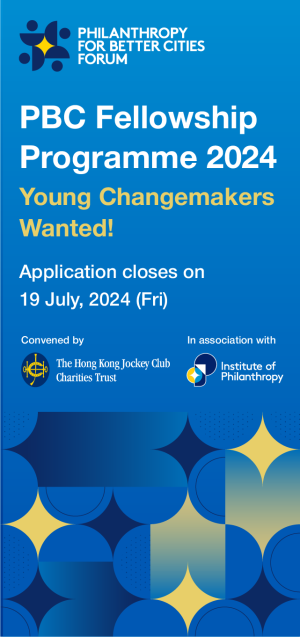Philanthropists’ interest in incorportating impact investing, both in grantmaking and their endowment, is growing, according to two philanthropic support organisations.
Impact Europe and Philea (Philanthropy Europe Association) have released new guidance for philathropists looking to diversify. They say they’ve had incresing interest from philathropic organisations wanting to know more about how best to invest for impact with both grantmaking and endownment.
The organisations’ new joint report Philanthropic Organisations Using the Entire Toolbox for More Impact also talks of a “wider societal shift” in expectations for endowments investing to create more than financial returns (ie, social and / or environemental returns).
Guidance on ‘catalytic grantmaking’
The guide also underlines the potential of catalytic grantmaking, highlights challenges and opportunities, and points to existing legal or statutory barriers to impact investing.
The seven-paged paper states: “Philanthropic organisations can deploy grants with a catalytic mindset, but they can also use repayable financial instruments and/or invest their endowment with social and/or environmental purposes.
‘When it comes to repayable finance and impact investing, some philanthropic organisations are already important players in the ecosystem in Europe, and more philanthropic players are showing interest in entering the space.’
But the report also countered: ‘It is important to acknowledge that impact investing will not be for all philanthropic organisations, as there are legal barriers to this in several countries.’
Boosting philathropists’ confidence on impact investing
Through events, gatherings, data gathering and policy support, the two organisations aim to equip Europe’s philanthropic organisations with more confidence on how best to do impact investing.
A spokesperson for Impact Europe commented: ‘Institutional philanthropy in Europe includes over 186,000 foundations, with an accumulated annual expenditure of €54 billion, while the direct impact investing market in Europe is estimated at €80 billion. This initiative will build understanding between these two pools of capital, allowing them to work closer together and thereby achieve more impact.’
The paper states that many philanthropic organisations have already started going beyond grantmaking by using different financial instruments (e.g., loans as well as equity and hybrid instruments, such as mezzanine and convertible loans coupled with non-financial support).
How to make the best use of philanthropic resources
It states: ‘Philanthropic organisations have seen benefits in using repayable finance to support impact organisations, responding to their needs and helping them scale and increase their positive impact. At the same time, the use of returnable financial instruments has enabled philanthropic organisations to increase the impact reach of their own finite resources.’
Philea CEO, Delphine Moralis, said: ‘Faced with a myriad of challenges ranging from climate to democracy and equality, foundations are considering how to best use the tools at their disposal. Philea is excited to join forces with Impact Europe to further enable impact investing by foundations, be it from their programmes, endowments, or by taking a holistic approach to their toolbox.’
Claudia Cahalane is Investments editor for Alliance.





Comments (0)
You have clear goals in all of our Papa's games. You might be putting money aside for a new car or a park ticket. You can only reach your goal by making money and helping other people.